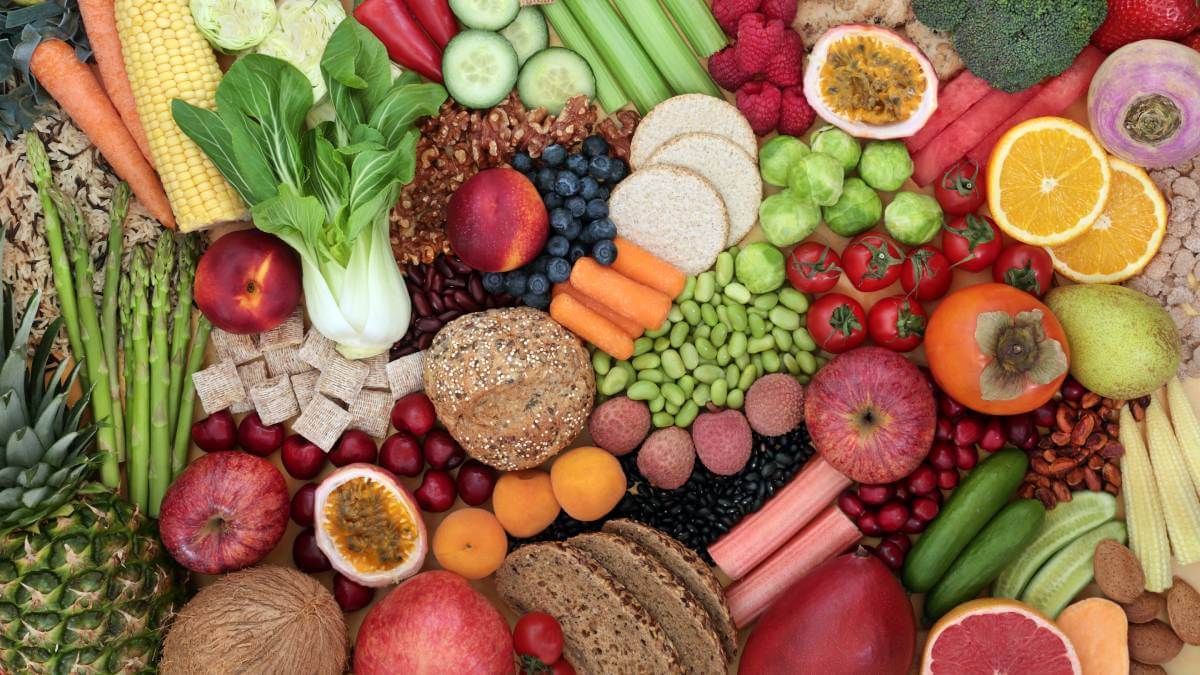Diet can play an important role in lowering your cholesterol. Many foods increase your low-density lipoprotein (LDL) cholesterol, the ‘bad’ cholesterol, but there are healthy and delicious options that can lower it.
Monounsaturated and polyunsaturated fats actively help lower LDL levels, while plant stanols and sterols prevent the body from absorbing unhealthy cholesterol. Foods that help lower cholesterol don’t have to be boring – here are eight to add to your diet.
Avocado
Avocado is a fruit that is often touted for its health benefits. One of these benefits is that it can help to lower your LDL cholesterol due to the monounsaturated fat it contains.
Remember, not all fat is scary. Unsaturated fats support health, while saturated fats can raise cholesterol levels and increase a person’s risk of cardiovascular disease.
A 2015 study concluded that eating one avocado a day as part of a moderate fat, cholesterol-lowering diet can improve cardiovascular disease risk, specifically by lowering LDL cholesterol without lowering high-density lipoprotein (HDL) cholesterol.
Try eating it for breakfast by making avocado toast or adding it to your lunch in the form of a salad or wrap. Avocado oil, which has a subtle, sweet flavour, can also be used in place of other oils in cooking.
Oats
A small 2017 study found that eating 70g of oats in the form of porridge each day for four weeks improved blood cholesterol levels. Oats contain soluble fibre, which can help reduce the absorption of cholesterol into your bloodstream. Studies have shown that consuming three to five grams or more of soluble fibre each day can help decrease LDL cholesterol levels.
You can add oats to your diet by eating porridge or oat-based cereal for breakfast. If you add fruit, such as a banana or berries, you’ll get even more fibre first thing in the morning.
Apples and pears
Apples and pears are rich in pectin, a soluble fibre that is also found in strawberries, oats and beans. A 2019 study found that eating two apples a day reduced both total and LDL cholesterol levels. Levels of triglycerides, a type of fat found in the blood, were also lowered.
In addition, apples contain compounds called polyphenols, which may also have a positive impact on cholesterol levels.
Choose an apple or pear as a naturally sweet treat to satisfy afternoon cravings. Chop up an apple and serve it with nuts and yoghurt as a heart-friendly snack or healthy breakfast.
Beans and legumes
Beans and legumes are excellent sources of protein and fibre. They are digested slowly by the body, which helps keep you feeling full for longer.
There are many varieties of beans and legumes, so it’s easy to find ways to keep meals interesting. They are also a good option if you want to reduce the amount of meat you consume, which can help to improve cholesterol levels and lower the risk of heart disease.
Tinned options offer the same amounts of cholesterol-lowering fibre as soaking and cooking dried beans, so don’t be put off by the idea that they are time-consuming to cook.
One cup of beans or legumes contains about four grams of cholesterol-lowering fibre.
Almonds and walnuts
Nuts are exceptionally nutrient dense, and almonds offer numerous health benefits, including reducing unhealthy LDL cholesterol and preventing LDL from clogging arteries. Almonds are particularly rich in L-arginine, an amino acid that helps your body make nitric oxide, which helps regulate blood pressure.
Walnuts are rich in the plant variety of omega-3 fatty acids, a type of polyunsaturated fat associated with heart health.
Eating a daily serving of nuts is linked to a 28 per cent lower risk of both fatal and nonfatal heart disease. Though good for you, nuts are high in calories and should be consumed in moderation.
Fish
Fatty fish is a good source of omega-3 fatty acids, which have been shown to reduce triglycerides, blood pressure and the risk of blood clots. In people who have already had heart attacks, omega-3 fatty acids may reduce the risk of sudden death.
The highest levels of omega-3 fatty acids are in:
- mackerel
- herring
- tuna
- salmon
- trout.
Baking or grilling the fish avoids adding unhealthy fats.
Extra virgin olive oil
One of the most important foods in the heart-healthy Mediterranean diet is extra virgin olive oil.
One five-year study gave older adults at risk of heart disease four tablespoons (60ml) a day of extra virgin olive oil alongside a Mediterranean diet. The olive oil group had a 30 per cent lower risk of major heart events, such as stroke and heart attack, compared to those who followed a low-fat diet.
Dark chocolate and cocoa
Cocoa and dark chocolate have been shown to lower LDL cholesterol and protect it from oxidation, which are both major contributing factors to heart disease. However, chocolate is often high in added sugar, which can offset these benefits. Therefore, it is best to use cocoa powder or choose dark chocolate with a high cocoa content (at least 70 per cent) to get the most heart-healthy benefits.
Do you actively eat a diet to help lower your cholesterol? What works best for you? Let us know in the comments section below.
Also read: Cholesterol facts and fiction

